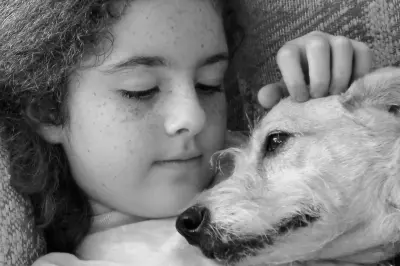Nurture Nature

We have a symbiotic relationship with nature: we benefit from it, and we in turn we need to take care of it. We see this clearly with animals; and we should also work to protect our green environment.
Add animals to your life
 As with plants, we evolved in nature alongside animals and they hold a natural fascination for us. Of course, that is not a surprise, since animals were often our meal, or we theirs! Animals also alert us to danger or indicate that all is right in the world. So watching wild animals is naturally interesting to us and offers a welcome distraction from life’s worries.
As with plants, we evolved in nature alongside animals and they hold a natural fascination for us. Of course, that is not a surprise, since animals were often our meal, or we theirs! Animals also alert us to danger or indicate that all is right in the world. So watching wild animals is naturally interesting to us and offers a welcome distraction from life’s worries.
In addition, with many animals we feel a natural tenderness, a reaction that is harnessed in the emerging field of animal-assisted interactions to enhance a sense of connection and healing. You don’t need to get a pet to benefit, although there is a large body of research showing the benefits of pet ownership, including lower blood pressure, depression, and anxiety—and a built-in exercise program! You can benefit simply by allowing yourself time to watch the birds and other wild animals in your yard or a neighboring park.
You can benefit further by contributing to the welfare of wild creatures around the world and helping to protect the biological diversity that our ecosystems need.

Relaxing with your pet
When you are overwhelmed by a personal problem, spend some time with a pet. Try breathing in rhythm with your animal. For a half hour, do nothing but be with your animal. If your mind starts worrying about your difficulties, gently return to your breathing. After 30 minutes, note your mental state.
Take care of our earth
Our relationship with nature is not a one-way street. Our connection with nature demonstrates that we need to protect it—for its sake and for our own. Learn more about what you can do for global environmental healthTo do that, begin by educating yourself on what you can do to live sustainably.
Even small steps can make a big difference. Think about where you can reduce your consumption of limited resources and reduce your waste. Can you bike to work a couple of days a week? Choose clothing that will last more than one season? Start with something that you like and can easily incorporate into your life and build from there.
Be an advocate for nature, because the wellbeing of nature depends on us.
Berman, M. G., Jonides, J., & Kaplan, S. (2008). The cognitive benefits of interacting with nature. Psychological Science, 19(12), 1207-1212.
Cervinka, R., Röderer, K., & Hefler, E. (2012). Are nature lovers happy? On various indicators of well-being and connectedness with nature. Journal of Health Psychology, 17(3), 379-388.
Devries, S. (2003). Natural environments -- healthy environments? An exploratory analysis of the relationship between greenspace and health. Environment and Planning, 35(10), 1717.
Lohr, V. (2007). Benefits of nature: What we are learning about why people respond to nature. J. Physiol Anthropol: 26(2), 83.
Mayer, F. S., Frantz, C. M., Bruehlman-Senecal, E., & Dolliver, K. (2009). Why is nature beneficial? Environment and Behavior, 41(5), 607-643.
Selub, E., Logan, A. (2012). Your brain on nature. Mississauga, Ontario: Wiley.
Weinstein, N. (2009). Can nature make us more caring? effects of immersion in nature on intrinsic aspirations and generosity. Personality and Social Psychology Bulletin, 35, 1315.

